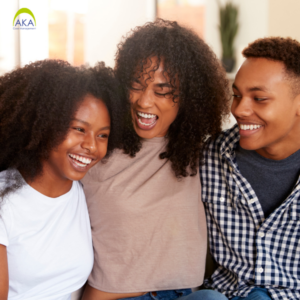
This article was written by Catherine Watkins, one of our Case Managers. She joined the AKA team in 2023 and has over ten years of experience working with complex acquired brain injury, stroke, and neurodegenerative disease.
Catherine wanted to highlight that transitioning from one stage of life to another can be challenging for any young person. Still, it can be incredibly complex for young people with acquired brain injuries. There are several essential factors that the family and the case managers need to take into consideration, for example:
We have left the article below in Catherine’s own words as we believe her thoughts and questions will resonate with families and those involved in caring for young people.
‘I have been reflecting on the work with a few of my current clients and those I have worked with over the years, specifically those outstanding individuals between childhood and adulthood. Professionally, we might discuss transitions or moving from child to adult services. Still, the day-to-day reality is that this is a normal part of growing up, the trajectory that we have all had our own experiences of.
How much additional complexity might there be in navigating this ‘separation’ from traditional parental caring to independence and standing on your own two feet?
What did I want to do as I evolved from a teenager into a young adult?
Whether I thought it or not at the time, I still needed some safety net, someone to catch me or pick up the pieces when things went wrong or difficult situations occurred, but alongside that, I wanted to make my own decisions, be my own person and most of all, feel in control.
Being out of control is a scary place to be. I don’t have the direct lived experience of an acquired brain injury, but no doubt from knowing and working alongside people who do, there is a tremendous sense of a lack of control, of being ‘done to’, of being the patient and the ‘cared for’ one.
The family system is completely disrupted, shattered by the experience and life-changing outcomes. Those with perceived ‘good’ outcomes, living in the community with the proper structure and support to allow themselves to live as they wish, are back on some ‘normal’ path, whatever that may be.
Young people with an acquired brain injury will want to be their own person, and they will likely be more determined than ever to ensure this happens.
Where does the responsibility of the family, case managers, and therapists lie in providing enough support and allowing freedom and movement forward into adulthood?
In my experience, our instinct is to protect our teenagers and young people when they want to explore the world in their own way, and they will push against anything that feels restrictive.
Seeing more than one perspective on a difficult situation may be challenging. Still, professionals and family members must ‘let go’ and contain some of their natural anxieties within themselves, allowing individuals to make their own choices while remaining sufficiently safe.
We have all been there on some level…every time you fail or something doesn’t go to plan, you learn something, probably most of the time without consciously realising it, reflecting, or thinking it through. Error-less learning is not a concept or reality that any of us have been on to get us to where we are now.
I notice how different the young people are; their family systems are different, their hopes for the future are different, the timescale of growing up and ‘separation’ is different, and the impact of their brain injury on this is unique to them.
Moving out and having your own home, accessing further education, gaining independence through driving, getting a job, or finding a vocation in life are all huge things, and they are not in themselves one-time events; they take months and years to achieve.
Some may want to do this with the close protection and support of those around them. They may want to lead from the front with or without someone to help them navigate a path to achieve what they want.
I have seen people with life-changing brain injuries achieve great things
To reflect on what has been achieved by some, should only act as more motivation and self-confidence for others. The path will be unique, and as case managers, we may be privileged enough to share some or all this journey, but the achievement is that of the individual and not ourselves.
Another reminder that whatever our perceptions and thoughts might be, it is not us living this life; it is the individuals themselves, and they must remain genuinely at the centre of everything we do.’
These thoughts written by Catherine show us that the transition of young people with acquired brain injury is different for each individual. Their aspirations and needs vary, and the level of support varies. Over the next few months, we plan to write about some of our clients who have made different decisions depending on what was most important to them. There is no one expected outcome. At AKA, we respect and support each young person to enable them to live their life in their own way.